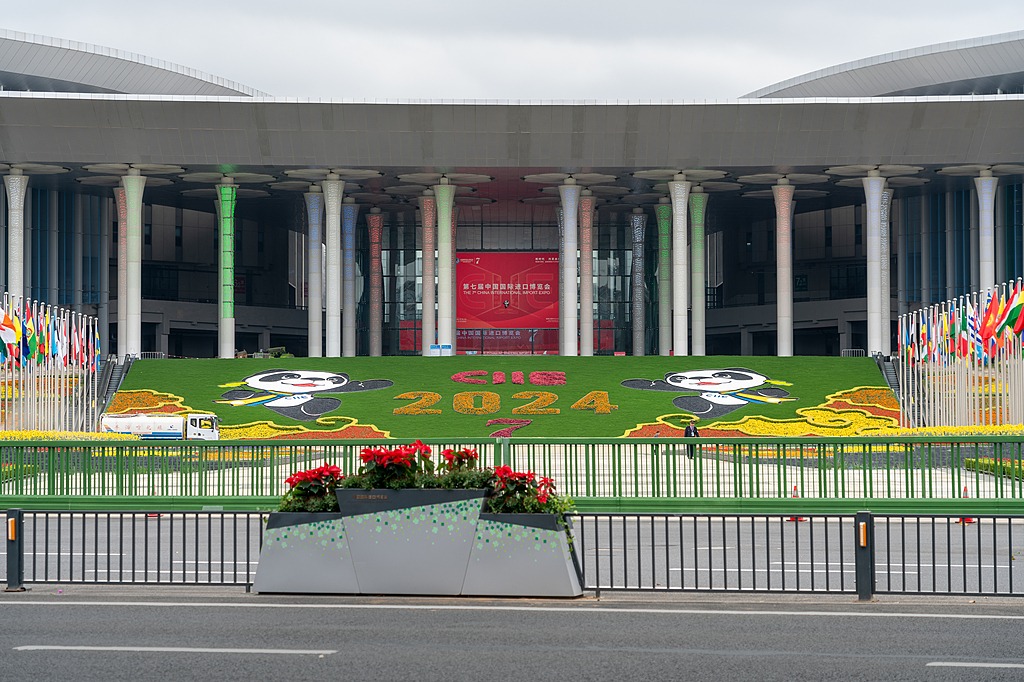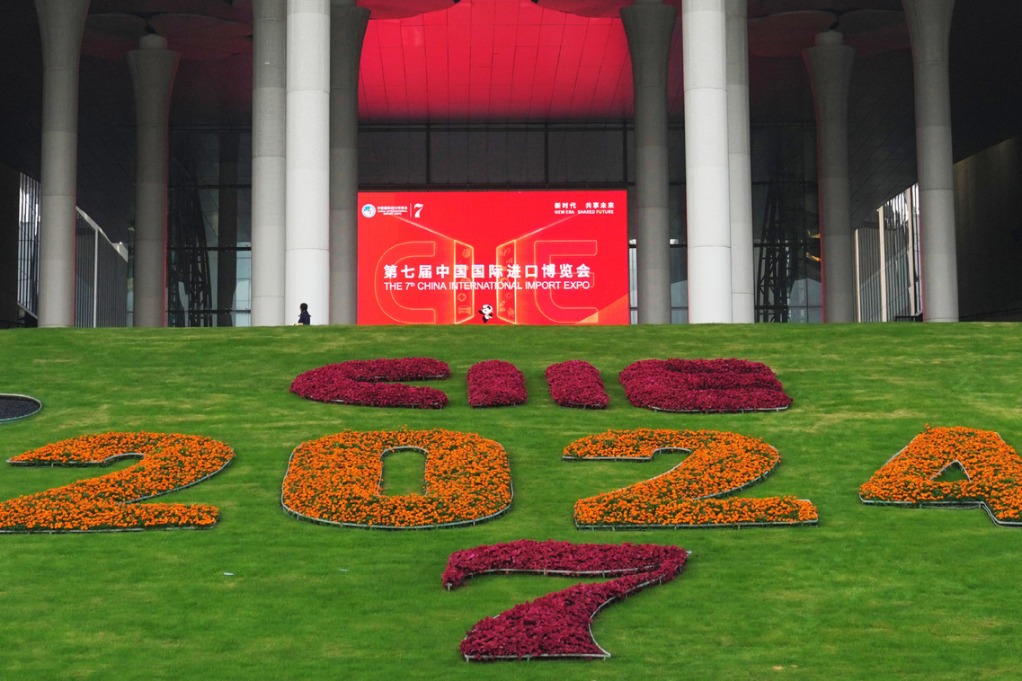A firm that's as tough as its products

Fiberglass Company has overcome instability and cultural issues in Egypt
It is around 2 pm and the muezzin issues his prolonged call to remind the Muslim faithful that it is time to pray. The call reverberates around a spacious and modern factory about 40 kilometers from the Suez Canal in Egypt that produces fiberglass.
Heeding the call, a portion of the more than 800 Egyptian employees of Jushi Egypt Fiberglass Company leave their workstations and move to prayer rooms along the country's first fiberglass production line. There is a call to prayer five times a day and each round takes 10-20 minutes.
| A workshop of Jushi Egypt Fiberglass Company. Fu Jing / China Daily |
"Our Egyptian workers have compromised and take turns at prayer, though they are required to pray at fixed times because we cannot stop production," says Chen Jiming, general manager of the company.
Chen has been a manager for years with parent company Jushi Group Co Ltd, based in Zhejiang province, the world's biggest fiberglass producer, making about one-fifth of the global total. Chen says managing people in an Islamic setting is more "complicated" than his experiences in China.
"But we respect their cultures and religious practices," he says.

Chen arrived in May to start production in the first phase of the high-tech plant, which represents China's biggest investment in Egypt, so far standing at more than $223 million.
The first of the key production steps in the factory is the conversion of raw materials such as borax, silica sand, limestone and soda ash into a homogeneous, melted batch in a furnace heated to about 1,370 C. The molten glass is fed into heated spinners to produce fibers that are then stretched into filaments by a high-speed winding machine.
A furnace lasts about eight years and, ideally, once it is lit, it runs without stopping. "So we arrange prayer time to ensure that some workers can still be on the job all the time," Chen says.
Egyptian authorities have praised Chen's company for not canceling plans for the factory despite Egypt's recent civil unrest.
Starting in 2011, Egypt has seen two revolutions - longtime president Hosni Mubarak was overthrown in February 2011, and Islamist president Mohamed Morsi was overthrown in July 2013 by the military.
With Egypt's stability being called into question, many Western investors withdrew for safety's sake. But Jushi Group, which has registered about $700 million in annual sales for several years, had begun a feasibility study in 2011 and it began to build production lines in the Suez Economic and Trade Cooperation Zone near the Red Sea in early 2012. It started operating those lines in May this year.
Jushi's project in Egypt is divided into three phases. The first 80,000 tons of capacity is in production, and plans call for the second phase of 80,000 tons to begin operating by the end of next year. Everything is due to be in full operation by 2018.

Chen says Jushi Group has three production centers in China in addition to the factory in Egypt. Fiberglass is a strong, lightweight material used for insulation and to strengthen composites in uses as diverse as aircraft, water pipes and roofing.
Fiberglass requires sophisticated manufacturing facilities, making it a challenge for the company to make the material in Egypt, where many factories are still rudimentary.
"Our high-tech investment is pioneering for Egypt, and it is not easy for us to hire skilled workers," Chen says.
Chen has brought in Chinese technicians to do onsite training for Egyptian workers while sending Egyptian workers to factories in China for training.
The outcome has exceeded expectations. Out of 900 staff members, there are only 60 Chinese, and Egyptians comprise 40 percent of the management team. "I found that they learn very fast if they are determined to do so," Chen says.
Chen says he expects to have a total of about 1,500 Egyptian employees after the factory reaches full operation with the investment of an additional $300 million.
Most of the production will be exported, which will help Egypt earn foreign exchange, which it badly needs as it tries to gear up for an economic takeoff.
Jushi's studies found that Egypt had many advantages despite the uncertain investment environment. Chen's company compared sites in the United States, Canada, Russia, India and many other countries when it decided to expand overseas.
"Finally, we decided on Egypt, mainly because it is an influential country in the Arab world and it has incomparable geopolitical advantages," he says.

Egypt can serve as an export gateway to Europe, the Middle East, Africa and even the US and Canada for Jushi's products. "Egypt is an ideal choice when we compared logistics costs for transporting products from China," Chen says.
Fiberglass consumption rises as economies become more advanced, Chen says, so the US, Canada and the European Union are his company's prime export markets.
Egypt has also helped the company with other trade issues. As the global economic crisis dragged on into 2010, the EU launched an anti-dumping investigation over the company's exports to Europe. Turkey and India followed suit.
Starting from 2012, Jushi's exports from China to the EU were hit with an extra 13.8 percent anti-dumping tariff, above the 7 percent tax rate.
"If we export from Egypt, which has signed zero tariff agreements with the EU, our cost is at least 20 percent less than exporting from China," Chen says.
Labor costs are also lower than in China, and Egypt can supply raw materials needed for fiberglass production.
Jushi was encouraged to invest due to cheap electricity and gas supplies subsidized by the Egyptian government. But he notes that the government started to raise energy prices in July, which has meant a large increase in costs because fiberglass production is energy intensive.
While starting from a low base, Egypt has boosted natural gas prices by 250 percent, electricity by 50 percent and other fuels by 70 percent. But Chen says even with the higher prices, they are still lower than in China.
The changes will increase construction costs by 10 percent. And while energy expenditures accounted for about 14 percent of the Egyptian factory's total production costs, it is now up to nearly a quarter.
Chen says while he plans to increase the prices of his products by 2 or 3 percent, "this is not the way out.
"We need to improve our technology and management to soak up this energy price rise, and I think we still have room to do so."
fujing@chinadaily.com.cn
(China Daily Africa Weekly 10/03/2014 page22)































